
Tell us what you need to find a matching loft conversion specialist

Get free quotes from professionals near you

Compare offers and choose the one that best matches your need
- Householdquotes.co.uk
- Driveway
- Driveway Materials
- Resin Driveway
Resin Driveway UK: The Complete 2024 Guide


- Resin driveway costs range from £60 to £100 per m2, varying based on factors such as driveway shape and size, location, accessibility, and type of resin used.
- Resin driveways can last up to 20 years if regularly maintained.
- Resin-bound driveways are the most popular type available as they are not only durable but porous, therefore providing excellent drainage to your driveway.
If you’re looking for an innovative, long-lasting driveway solution that radiates both practicality and style, resin driveways are the perfect choice.
Although they have only been available since the 1990s, resin surfaces are now a popular choice for homeowners worldwide. They have become highly sought after due to their exceptional durability, versatility and low-maintenance requirements.
This article will provide you with valuable insights into the cost, benefits, installation process, and maintenance considerations of resin driveways.
Our expert guidance will empower you to make an informed decision so you can enjoy a beautiful, seamless and long-lasting driveway that will exceed your expectations for years to come.
If you're interested in a resin driveway, we're here to make the process as hassle-free as possible. Finding a reliable driveway installer can be difficult, so we offer a service with four free, non-binding quotes from trusted local installers.
Our network of expert driveway installers is reliable, cost-effective, and tailored to your preferences. You can be confident that your driveway will be of the highest quality, built to last, and customized to your unique needs.
Fill out our 30-second form to start, and we'll take care of the rest. Our service saves you time, money, and stress, ensuring your driveway installation is smooth and enjoyable. Click below to learn more.
- Describe your needs
- Get free quotes
- Choose the best offer
It only takes 30 seconds

How much does a resin driveway cost?
Resin driveways typically cost around £2,500 for a two-car driveway. Factors that impact the cost of the installation include your driveway size, location, accessibility, and the type of resin used.
Resin driveways can be a cost-effective option compared to the average driveway resurfacing cost in the UK, which ranges from £6,000 to £6,700.
Compared to cobblestone or block paving, it is more cost-effective. The installation costs are lower, and it requires less maintenance, reducing overall future costs.
There are two resin driveway materials: resin-bonded and resin-bound.
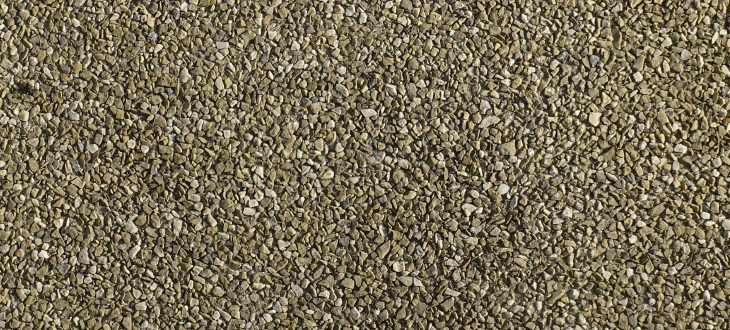
Resin-bound driveways are the most popular of the two because they are porous and provide excellent drainage.
The aggregates and resin are mixed together to create the driveway, resulting in costs ranging from £1,200 to £10,000, depending on the size of your driveway.
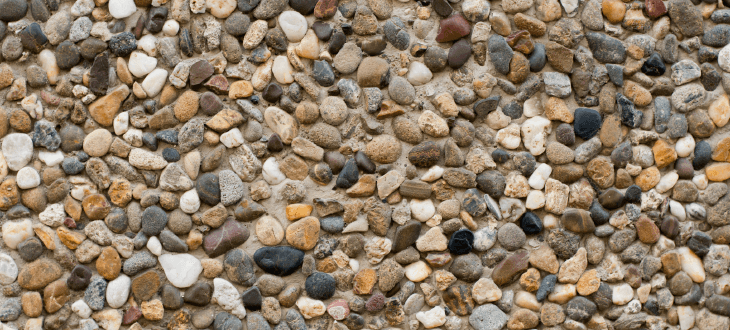
Conversely, resin-bonded driveways cost from £800 to £6,000. The aggregates are poured on top of the resin and left to dry, resulting in a more textured surface.
As it is a non-porous material, a sufficient drainage system will need to be installed into your driveway to prevent flooding. While cheaper than resin-bounded, it is important to consider the costs of a driveway drainage system, which can range up to £1,000.
Resin driveways come with various costs. Below, we'll provide more details to help you make an informed decision.
Average cost of resin driveway types
Resin driveways typically cost between £60 to £100 per square meter. Factors influencing the price include driveway size, resin type, location, and driveway accessibility.
The cost of your resin driveway can also be affected by its current base and condition. If your driveway is old and made of asphalt, tarmac, or concrete, you create a new paved driveway using a layer of resin.
However, if your old driveway is severely damaged, then its removal is necessary, which can increase costs. On average, the cost of removing an old driveway can range from £1,500 to £2,000.
It is important to note that the cost of a resin driveway will decrease as the surface area increases. This is because it is more cost-effective to buy resin in bulk rather than in small amounts.
According to PriceYourJob, the cost of materials for a resin driveway generally accounts for around 50% of the overall cost, while labour costs account for the remaining 40-50%.
While it's possible that materials may be less expensive for a larger driveway, it's important to keep in mind that larger driveways require more labour and time, which can result in a higher overall cost.
Here is a breakdown of the average cost of resin driveways per driveway size based on the average cost per square metre. This will give you a better idea of what to expect in terms of costs.
| Driveway size | Average cost |
|---|---|
| Small driveway (30m2) | £1,800-£3,000 |
| Medium driveway (60m2) | £3,600-£6,000 |
| Large driveway (90m2) | £5,400-£9,000 |
How much do resin driveway installers cost?
The average cost of hiring a resin driveway installer ranges from £150 to £200 per person per day. This cost applies to all other types of driveways as well.
The price may vary depending on the contractor's experience and the time required to complete the driveway. The size and shape of your driveway will determine the duration of the project, which in turn will determine the labour cost involved.
Below is the average timeframe per driveway size:
| Driveway size | Timeframe |
|---|---|
| Small driveway (30m2) | 3-5 days |
| Medium driveway (60m2) | 1-2 weeks |
| Large driveway (90m2) | 2-3 weeks |
It's important to note that the cost of hiring a resin driveway installer may vary based on the current condition of your driveway.
If your old driveway has significant damage or you want to turn your front garden into a parking area, labour costs will increase. This is because more time will be spent excavating the site.
While it's not recommended to attempt a DIY driveway installation, you can save money by clearing and excavating the site yourself.
If you are looking for a cheaper driveway alternative, then consider looking into gravel driveway ideas. Gravel is not only cheap to supply but is quicker to install, which reduces labour and installation costs.
Cost of resin driveway kits, tools and supplies
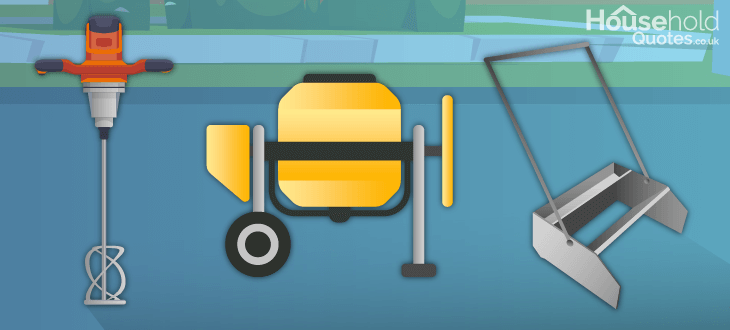
Resin driveways can be more difficult to install on your own than other driveway materials, but they are still achievable. Before deciding whether to DIY your resin driveway, it is important to consider the total cost of resin driveway kits, tools, and supplies.
Resin driveway kits provide the necessary materials for paving your driveway. According to RSD, the average cost of a resin-bound driveway kit is around £80. Most wholesalers of resin driveway kits provide both the aggregates and the resin components, but some only offer the aggregates, and the resin components are sold separately.
Once you have purchased the driveway resin kit, you will need to acquire the necessary tools and supplies to create your resin driveway. These include
- Drill and Paddle Mixer: Used to mix the components of resin together. On average, these can cost between £70 to £300, depending on the quality and brand you choose.
- Forced Action Mixer: Essential for resin-bound driveways. It allows an even mixture of resin to the aggregates to ensure a smoother surface. For a 120-litre forced action mixer, you can expect to pay up to £2,498.
- Screed Sledge: A screed sledge distributes and levels the mixed material before trowelling. Expect to pay around £250 for one.
- Hygrometer: This allows you to measure humidity in the air, which can help determine when you lay the resin down. On average, it will only cost £5.
- Flooring Trowel: Trowels ensure that the resin material is well-compacted in your driveway, creating a smooth and durable surface. They typically cost around £13.
If you're considering DIY-ing a resin driveway to save on installation and labour costs, the supplies and tools needed to create one can be just as expensive as hiring professional driveway installers.
Additionally, installing a resin driveway can be difficult, so it's important to have experience in this area. Poor installation can lead to future issues, which is why hiring resin driveway installers is essential.
HouseholdQuotes will provide you with four free quotes from local, trusted resin driveway installers, saving you time and money. Fill out our 30-second form to obtain these quotes as soon as possible.
- Describe your needs
- Get free quotes
- Choose the best offer
It only takes 30 seconds

Resin paving step-by-step
Resin driveways offer a sleek and durable solution for enhancing the exterior of your property. The process of installing a resin driveway typically involves several key steps:
1. The first step in resin paving involves excavating the area where the driveway will be installed. The excavation depth should be around 150mm. Once the area has been excavated, a sub-base of MOT type 1 is placed down. This helps distribute the driveway's weight evenly and improves drainage.
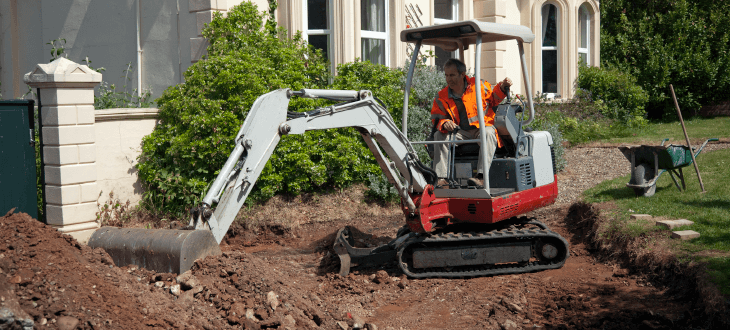
2. After the base is prepared, the surface is inspected for any damage. Damage needs to be repaired before the resin mixture is added to ensure a smooth surface.

3. The resin-aggregate mix is then prepared. The ratio of resin to aggregate varies depending on the manufacturer, but it is typically 3 parts aggregate to 1 part resin.

4. Once the mixture is ready, it can be spread onto the prepared base using a trowel or roller. At this point, ensuring that the mixture is spread evenly and not too thickly is crucial. Failure to do so may result in an uneven surface. lead to an uneven surface finish.
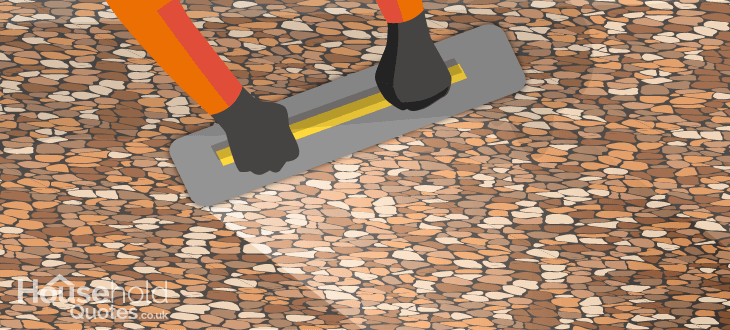
5. Once the resin mixture is spread evenly, use a roller or screed to compact and level the surface. This helps to remove air bubbles and create a uniform thickness across the paved area.
6. Once the mixture has been spread, it should be allowed to cure for 24 hours before usage. During this time, the resin will harden and bind the aggregate together to create a strong, durable surface.
7. After the resin has cured, use a brush or blower to remove any excess aggregate from the surface. Clean the paved area to remove any residue, and admire your newly transformed space.
8. Depending on the type of resin used, applying a sealer may be recommended to enhance durability and prolong the lifespan of the paved surface.
If you want to have a beautiful and long-lasting resin-paved surface in your outdoor space, you can follow these steps.
However, it's important to note that paving a resin driveway yourself can be challenging, and if not installed correctly, it can cause extensive damage, such as mould and weed growth.
Although it may seem like a good idea to cut labour costs, it's crucial to work with a professional resin driveway installer who can ensure the creation of a durable and long-lasting driveway for you.
How to clean a resin driveway
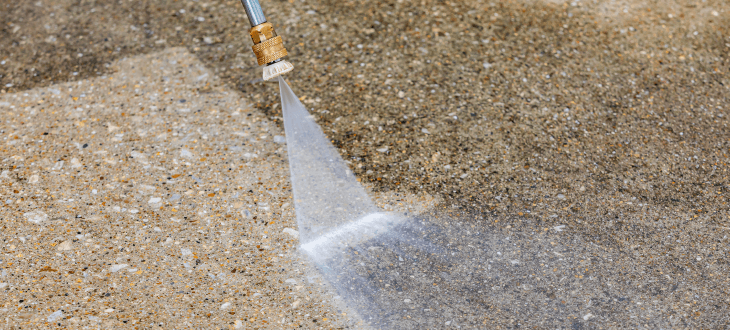
Cleaning a resin driveway is essential for its appearance, lifespan, and safety. It prevents the accumulation of dirt, stains, and debris, which harms the surface and makes it look dull.
Regular cleaning also prevents damage caused by moisture or corrosive substances and reduces the risk of slips and falls.
Resin driveways are considered relatively easy to maintain. To remove debris, it is recommended that you regularly sweep your driveway with a stiff brush.
If there are any stains or tough marks, it is recommended that they be removed using a jet washer. However, if you do not have access to a jet washer, then hosing down your driveway will be nearly as effective.
While resin is one of the best driveways for no weeds, seeds can be spread onto the surface from the weather and animals.
So, it is important to keep an eye on weeds sprouting from your resin driveway. If they do appear, remove them by hand to prevent damage from occurring to your driveway.
By regularly maintaining your driveway, you can increase its lifespan and ensure you do not have to pay for any costly repairs in the future.
Resin driveways pros and cons
Resin driveways offer several advantages and disadvantages, which you should consider before deciding whether they're the right choice for your property.
- Aesthetic appeal: Resin driveways provide a sleek and modern appearance that can enhance the overall look of your property. They come in a variety of colours and finishes, allowing for customization to match your aesthetic preferences.
- Durability: Resin driveways are highly durable and resistant to cracking, UV damage, and oil stains. They can withstand heavy foot and vehicle traffic, making them suitable for long-term use.
- Low maintenance: Once installed, resin driveways require minimal maintenance. They can be easily cleaned with a hose and mild detergent to keep them looking fresh, and there’s no need for sealing or regular coating reapplication.
- Permeability: Resin-bound driveways are permeable, allowing water to drain through the surface and prevent pooling or flooding. This can help to reduce the risk of water damage and erosion, as well as comply with sustainable drainage regulations.
- Smooth surface: Resin driveways offer a smooth and level surface that is comfortable to walk and drive on. They are also wheelchair-friendly and suitable for properties with mobility requirements.
- Initial cost: The upfront cost of installing a resin driveway can be higher than that of traditional paving materials like concrete or gravel. However, the long-term benefits and durability may offset.
- Heavy usage: While durable, resin driveways are affected by heavy usage. Over time, they can lift and crack. If your driveway receives heavy traffic daily, it would be best to opt for other alternatives, such as concrete.
- Curing time: Resin driveways typically require a curing period before they can be used, which can range from a few hours to several days, depending on the specific product and weather conditions. This may inconvenience homeowners during the installation process.
- Slippery when wet: While resin driveways are generally slip-resistant, they can become slippery when wet or covered in ice. Adding anti-slip additives or choosing a textured finish can help to improve traction in wet conditions.
- Limited repair options: In the event of damage or staining, repairing resin driveways can be more challenging compared to other materials. Small cracks or chips may require professional patching, and extensive damage may necessitate resurfacing the entire driveway.
Overall, resin driveways offer a stylish and durable paving solution with minimal maintenance requirements, but it's essential to weigh the pros and cons against your specific needs and budget before making a decision.
Resin and other materials in comparison
Resin is a synthetic compound used for indoor and outdoor decorations. Its modern and sleek appearance comes in various colours, textures, and finishes. It's durable and resists cracking, UV damage, and stains.
Resin surfaces are permeable, allowing water to pass through and helping to prevent flooding and erosion. Although they may cost more and require professional installation, they require little maintenance and can last for many years with proper care.
On the one hand, materials such as concrete, asphalt, and gravel are commonly used due to their affordability, durability, and versatility.
Concrete is renowned for its strength and long-lasting properties. Meanwhile, asphalt provides a smooth and tough surface ideal for roads and driveways.
On the other hand, gravel offers a rustic look that is easy to install, cost-effective, and porous. These materials have lower upfront costs compared to resin. However, they may require more maintenance, including occasional cleaning, repairs, and sealing.
Consider aesthetic preferences, durability, maintenance, and budget when comparing resin with other materials.
Resin offers design flexibility, durability, and low maintenance, making it famous for modern landscapes, decorative features, and high-traffic areas.
However, traditional materials like concrete, asphalt, and gravel are more affordable and versatile in design. Ultimately, the choice depends on the project's specific needs.
Are resin driveways worth it?

Resin driveways are a great investment for those who want a stylish, low-maintenance driveway that will last. If properly maintained, a resin driveway can last up to 20 years on average.
Resin driveways have many benefits, including a modern, sleek appearance, durability, and permeability. They can enhance the look of your property and provide a long-lasting surface.
However, they have a higher upfront cost than traditional paving materials like concrete, asphalt, or gravel. Additionally, if your driveway experiences heavy usage, resin may not be the best choice since it is prone to lifting.
When considering a resin driveway, it is essential to weigh the advantages against the budget constraints and consider factors such as aesthetic preferences, durability requirements, and long-term maintenance needs.
If you're looking to enhance the look of your home with a resin driveway, it's essential to find a trustworthy and skilled installer.
Comparing multiple quotes is a must to ensure you get the best deal. So why not save time and stress by working with highly qualified driveway specialists?
Here at Household Quotes, we take the hassle out of comparing quotes. Our simple and efficient process allows you to receive four free quotes from local driveway installers tailored to your needs.
They are experienced and qualified to provide the best quality workmanship.Don't settle for less when it comes to your home's appearance.
Fill out our 30-second form for free quotes and take the first step towards your dream driveway. Click below to explore your options and see how we can help you.
- Describe your needs
- Get free quotes
- Choose the best offer
It only takes 30 seconds

FAQ
Resin driveways have a few disadvantages that you should consider before choosing this material for your driveway. Firstly, the installation costs of a resin driveway are higher than those of other materials like gravel or asphalt. Secondly, resin driveways are less durable and may start lifting over time with heavy usage. If your resin driveway gets damaged, repairing it can be difficult and more expensive than that of other materials.
The average cost of a resin driveway is between £60 and £100 per m2. However, the cost depends on several factors, including the shape and size of your driveway, the type of resin you choose, your location, and the accessibility of your home.
On average a resin driveway can last up to 20 years if regularly maintained and cleaned. Failure to maintain your resin driveway can reduce its lifespan and will become more prone to damage.
Resin is a cheaper option than block paving. It’s not only cost-effective to install due to its simple and easy installation process, but it’s also cheaper in the long run. This is because it requires less maintenance than block paving, reducing maintenance costs.

Caoimhe is an experienced content writer and researcher who is passionate about providing accessible information to every reader. With a background in English literature and Sociology, she combines the two disciplines to create cohesive, well-thought-out, and well-informed pieces.
